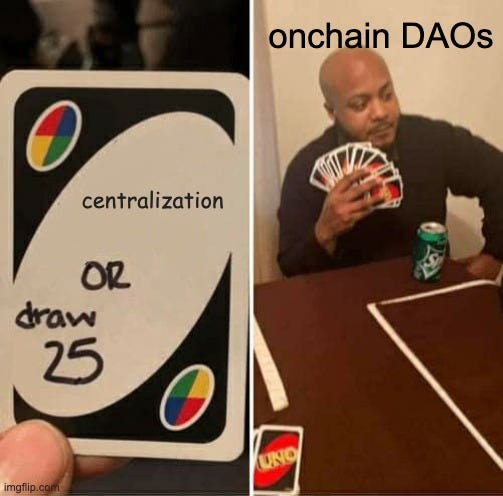Paying Delegates: Web3's Compensation Conundrum
The Tally Newsletter, Issue 100
ISSUE 💯, WE MADE IT!
Welcome back to the Tally Newsletter, your weekly source for DAO governance insights. I'm coolhorsegirl and I’m so happy to be here. 🟣
This week, we're discussing a hot-button issue that's been simmering on the backburner of decentralized governance: Should we open up our wallets to compensate our delegates? Well, Karma just dropped their Tip A Delegate feature. And this could be a game-changer. We could see an evolution in the delegate ecosystem, where the high-achievers reap greater rewards, spurring a race not just to be a delegate, but to be the best in the game.
We’ll also cover live proposals, this week on Nouns, Public Nouns, and Rari Foundation. I bet you didn’t know that there was a way to tie DAOs to World Heritage site stewardship! Anyway, let’s dive in 👇
🤿 Deep Dive: Paying Delegates: Web3's Compensation Conundrum
We’ve talked a lot about delegates recently (here, one more shameless Delegation Week plug). They’re potentially decentralized governance’s hottest topic, but it’s time to tackle the elephant in the room: should we be paying them?
This could go either way. Given their high-stakes role, a little compensation seems fair, right? Monetary motivation could turn the DAO-curious into dedicated delegates, driving them to put their blood, sweat, and time (and lots of it, reading and writing proposals) into growing a DAO. It’s like telling them, "Here's your piece of the pie, now make sure it doesn’t crumble." If we paid delegates, they would HAVE to care.
On the flip side, there are those who argue that involving money can corrupt the pure intentions of most delegates. Rewarding them might attract the wrong crowd, those more interested in flipping a quick buck than in nurturing the health and success of a DAO.
But maybe a love for a DAO isn’t enough to guarantee a good delegate. So, if we do decide to slide some tokens to our trusty delegates, how's it done? Each platform has its own recipe, but usually, it involves a serving of native tokens. Think of it as not just a payday, but a VIP pass to the network's future, granting them more voting power. Some others might toss in a share of transaction fees or block rewards – a neat trick to keep their eyes on the network security prize.
On the table now: cash compensation (examples are Aave in AAVE, MakerDAO up until now in DAI, Illivium in USDT, and Nouncil in ETH. There was no way for individuals (service receiver) to directly support the delegate representing them (service provider). Crazy, right?
Enter Karma’s new Tip A Delegate feature! In a recent development that builds upon cross-DAO initiatives aimed at recognizing and rewarding delegates, Karma’s new pilot feature enables users to offer tips to delegates (no middleman required, just like crypto). Users now have the ability to locate delegates using an ENS or ETH address, and subsequently tip them in stablecoins across multiple networks.
In theory, this has the potential to elevate the delegate ecosystem substantially. High-performing delegates would see an increase in their earnings, creating a more competitive environment. This introduces a unique dynamic where delegates are driven not merely by the desire to hold the title, as might be the case in DAOs offering a standard delegate salary, but by the pursuit of excellence. The aspiration isn't just to be a delegate, but to be the most effective and impactful one.
This delegate compensation gig is a balancing act. It's about luring the right folks, keeping our networks safe, and staying true to the ethos of decentralization. Before this discourse pans out, I’ll offer you an article on just that: “Incentivizing Web3 delegates, the driving force behind decentralized governance.”
⌛️ On-chain Proposals
On-chain DAOs are decentralized autonomous organizations that operate entirely on the blockchain, using smart contracts and other blockchain-based technologies for its operations and decision-making processes. Tally believes that true DAOs operate on-chain.
💚 Nouns DAO
Summary: This event will boost Nouns' visibility through a blend of Metaverse and real-life experiences, envisioning a future where Nouns pervade Japan. There'll be a Japanese booth at Web X, a global Web3 conference, and in the Metaverse, expect a vibrant depiction of Japanese summer festivals complete with live music (ooooh).
Voting ends: June 9th
Summary: Hello, physibles. Matr Labs proposes to manufacture 1,001 Nouns on-demand, from #0 to #1,000, utilizing custom robotics, software, and an exclusive redemption token. Noun holders will have the opportunity to customize and claim their corresponding physical copies.
Voting ends: June 10th
🚊 Rari Foundation
RRC-7: Rewards-2 (resubmitted)
Summary: 400k RARI for a revamped $RARI rewards program, aiming to stimulate a network effect among community marketplaces and their users on the Rarible Protocol. Seeking long-term partnerships with leading market brands to broaden the reach and impact of the rewards program and community marketplaces. (Initial submission had contract issues and was canceled.)
Voting ends: June 8th
🚊 Public Nouns
Support DAO Palace 2023, Incubating the future of DAOs and stewarding Cultural Heritage Sites
Summary: DAO Palace 2023 is set to be a collaborative incubator for top contributors to DAO public goods projects, building on past successes like pNouns and Family DAO. Participation is both inclusive and exclusive, with pNouns being invited as a Villa sponsor this year (for 2.7 ETH).
Voting ends: June 7th
📝 10 Things To Read or Listen To
📄 “Grants 101: Standing up a Grants Program in Web3” by Annika Lewis
📄 “Rollups Are L1s (& L2s) a.k.a. How Rollups *Actually Actually Actually* Work” by Jon Charbonneau
📄 “Chain of thought: Exploring blockchain through the lens of philosophy” by Sasha Shilina
📄 “Adventures in Ownership” by Caleb Shough
🧵 “The importance of gauges to decentralized governance” by Ken Deeter
🧵 “On Governments & Public Blockchains” by punk6529
🎧 “Sovereign vs. classic rollups” from Celestia (Spaces)
🎧 “Delegation Week Roundup” from Rari Foundation (Spaces)
🎧 “Content liquidity + protocol lock-in w/ Rafa” on On the Other Side
🎧 “The Tinder of On-chain Voting with Griff Green” on GreenPill
💫 DAO Talk: delegation week: revisited || DT weekly ep. 41
🤭 Meme of the Week
At Tally, we’re still cooling down from the hype/knowledge/mind-blowing that as Delegation Week. Catch up on the 10 Spaces on all things delegation here!
~ coolhorsegirl 🐴
p.s.- Hoi An, Vietnam at day / at night




